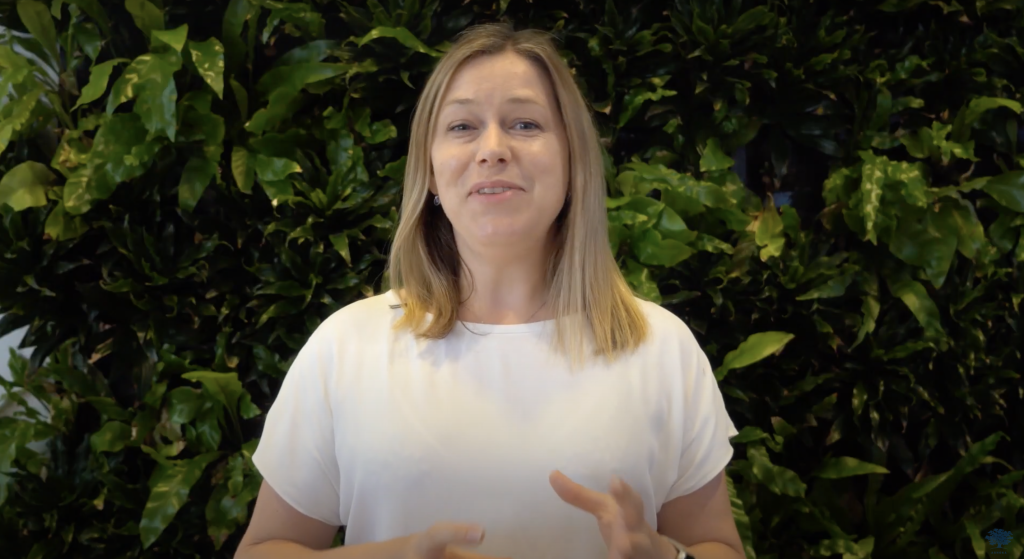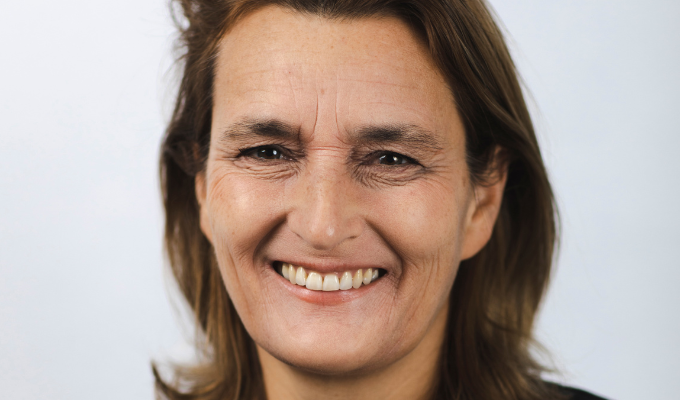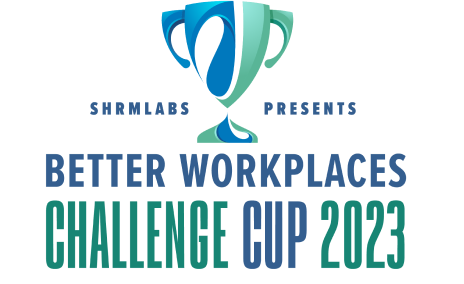Critical insights for an effective employee well-being strategy. An interview with Anoushka Bold

Anoushka Bold, previous Global HR Strategy Lead at Philips and Global HR manager at War Child, has led this research, as part of a Research MSc in Global Health, and provides the inner track on this topic with key take aways and insights for CHROs.
First of all, what brings a seasoned HR business strategist with a global leadership background from Philips, Heineken, PWC, Accenture and War Child to initiate a research MSc in Global Health at the VU?
Yes, it a good question! After many years of top trier consultancies and global roles I wanted to challenge myself. Learning that mental health issues were increasing exponentially and an important future focus in HR, it seemed a completely relevant specialism to draw together my two worlds of HR strategy/transformation/leadership with the necessity I felt to understand more on global health, health systems and governance. Combined with the fact that I get a lot of energy from learning and taking on stretch roles, Global health was also highly relevant to the Global Program Director role that I had at the time in the Philips Foundation. While investigating companies I could partner with for my thesis, Robin van Dalen stood out. She is CEO of Inuka Coaching, a social enterprise, with a mission to make wellbeing accessible for everyone. The company continuously invests in research to broaden knowledge on mental well-being and the impact of online life coaching to prevent employee drop out. A perfect match!

Your thesis focuses on evidence of effectiveness of mental health interventions in the workplace. Given your HR leadership background you must have had a unique position knowing the HR leadership angle yet leading the research?
It’s true. Most HR leaders do not have training in research, and most researchers have not held HR leadership positions, so it is quite a unique bridge, although I was careful not to lead the direction or research outcomes, to ensure validity of findings. Since Covid, the priority and focus of mental health and well-being in organisations is significantly higher and with greater impact. Well-being was previously in the fringes of HR focus, with Diversity, Equity and Inclusion (DEI) taking a larger focus, whilst now that has re-adjusted, with both topics being of similar weight and on the agenda of all company leaders, not only HR. The approach taken to well-being is a critical part of the corporate culture and a strategic, whilst indirect, aspect of driving the business results. This is no longer about doing ‘something’ on well-being, but getting serious about implementing proven, effective approaches as part of a robust and holistic strategy.
The approach taken to well-being is a critical part of the corporate culture and a strategic, whilst indirect, aspect of driving the business results.

You graduated cum laude in September, congratulations! What is the main take away for the CHRO community following from this research study?
Thanks so much! The deep and relevant learnings made the three-year investment completely worthwhile, and the cum laude was the icing on the cake! My key take aways include: 1/ Getting well-being right can have the single most significant impact on people-related business performance, this is also confirmed by recent PWC research. The right approach can turbo-charge innovation, transformation, and business growth, whilst an ineffective strategy promotes languishing and burgeoning costs in absenteeism, burnout, turnover, and inability to attract and retain top talent. 2/ A clinical and compartmentalised HR approach will not help. Mental health and well-being has to be an accessible, authentic and lived topic for all leaders and managers. 90% of the well-being issues are derived from organisational rather than the individual challenges, and accepting this, talking about mental health, and removing stigma is critical. 3/ The professionalisation of well-being in most organisations is immature; governance is often unclear or changeable, metrics focus on absence only, ROI cases are an aspiration, and decision making on programmes can follow local leaders and adhoc concepts or ideas, leading to patchy, non-strategic approaches lacking impact, hence expert help is recommended.

Interesting input for leaders in well-being, will you be sharing your insights?
Yes, definitely, I am on a mission now! Next steps include curating a series of abridged interviews, based on the research interviews, with the aim of distilling knowledge and insights for CHROs and decision-makers to advance their well-being practices; there will be white papers on critical topics, and an online session to share the research outcomes. One unexpected insight from the research is that there is clear space between HR professionals and researchers, in both the measures of intervention effectiveness, and the publication channels for sharing effectiveness outcomes and learnings. Since CHROs and CEOs are ultimate decision makers on employee well-being programmes, this thought leadership series utilises the channels and formats that are most popular for these critical decision makers, and ensures that the content is accessible, relevant, and hopefully sparks curiosity and action.

You interviewed quite some decision makers in Business, HR, occupational health and also consultants regarding your research question. Could you elaborate a bit on a thought-provoking or cutting-edge practice?
Well, it’s a bit of a cliché that high-growth tech organisations have the most innovative ideas, and in this case it’s also true! I was really inspired by the approach and philosophy of Gwen Burbidge, CHRO of WeTransfer, to well-being. Most poignant was the extreme concern of younger generations about societal issues and the war with Ukraine – environmental stressors that impact the mental health of gen y and gen z in particular. The deep care and empathy that WeTransfer has for its people was striking. They wish to build a resilient workforce by majoring on prevention, for the main reason of avoiding the awful personal impact of burnout on employees. Their bold move was to cancel the insurance related to people falling sick and invest all these funds in preventative well-being solutions for their people, taking a holistic and full organisation approach. – Gwen’s interview will be published in this channel next week. Subscribe to receive all interviews in your inbox here.

Could you pick one aspect that is particularly relevant for CHRO's?
CHROs are usually responsible for the high-level strategy, philosophy, and governance with regards to well-being. I have already mentioned that professionalising the approach is critical. In addition to this, the CHRO has the potential and power to achieve a step improvement for all people within the organisation, creating a real people-centred legacy. They can act on this by understanding the well-being value proposition for the organisation, the impact metrics, and how to make an ROI case for a full organisation-approach rather than incremental pilots, which are a more tentative.

You have interviewed many of your peers, what would you do differently with the knowledge you have right now?
During my time as Global HR strategy lead at Philips, I brought together the leads of Health and Safety, Facilities, D&I and Wellbeing, to collaborate and consider a holistic strategy around care of our people. I made the -successful- business case for a new Global D&I role. At the time, H&S was focused mainly on production sites and physical office safety, whilst D&I and well-being were represented by enthusiastic people who were taking on extra-curricular roles. Times have moved on and the nature and impact of well-being is now different. I believe my instinct of drawing these functional specialties together and beefing up the D&I component was the right one, but now I would also propose the addition of a Global Well-being lead, formalise the governance and the required collaborative efforts between and across these roles, also including Culture, and prompt and enable shared ownership of business leaders.

How do you anticipate making meaningful impact in the future?
By its very nature, well-being is a hugely impactful topic. Imagine being able to have an impact on the vitality of a full workforce. For Philips that would have been 70,000 people! I sincerely wish that through this thought leadership series and offering interim consultancy, I can share the deep insights on this topic to peers and all those with an influence on the decision-making around well-being. Together we can make a huge difference by implementing effective, evidence-based, strategic approaches.

What are your recommendations for further research on this topic?
Well, through my research I realised that the vast majority of people making decisions on employee well-being approaches do not find research accessible. It is not their daily business so they are often not familiar with the routes to access and/or don’t expect to have the capabilities or time to find it useful. Paradoxically, these decision makers want to have effective and evidence-based programmes. To make research more accessible, most research articles are 10 pages or less, they have consistent sections including an Exec Summary, Results, and Conclusion, so it’s possible to quickly jump to the relevant part to check for interest/relevance. If we can start to draw together the worlds of corporates and research, or start to build more bridges between the two, this will already be a huge step to leverage the rich research material that is already available. That is the reason why we are also publishing three white papers on key topics for well-being decision makers, which are fully referenced to the underlying research, so it’s possible to follow the links and access the connected research for topics that draw your interest. Isn’t that a great step towards making (mental) well-being easily accessible?

Did you like this interview?
Find more interviews with business leaders of various top companies via the button below. Would you like to receive the next interviews in your inbox? You can register below.
Powered by Inuka Coaching, a #BCorp and value-driven organisation. With our roots in research, we lead on evidence-based, digital and data-driven solutions that achieve measurable impact in employee vitality and resilience.
As part of our mission ‘Everyone resilient’, we strive to bring valuable content to advance the strategic thinking in employee well-being and facilitate a vibrant and growing peer network of leaders, because we all learn faster and achieve more together! Join our peer network of leaders focused on Well-being, register here
- Tags: CHRO, Effectiveness, Interview, Well-being
Find this post interesting? Share it with your connections!



